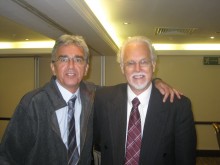William White describes how somewhere in the process of the professionalisation of addiction treatment in the US, treatment got disconnected from the larger more enduring process of long-term recovery.
He points out that we are recycling large numbers of people through repeated episodes of treatment. Their problems are so severe and recovery capital so low, there is little hope that brief episodes of treatment will be successful. We end up blaming them for failing to overcome their problems.









